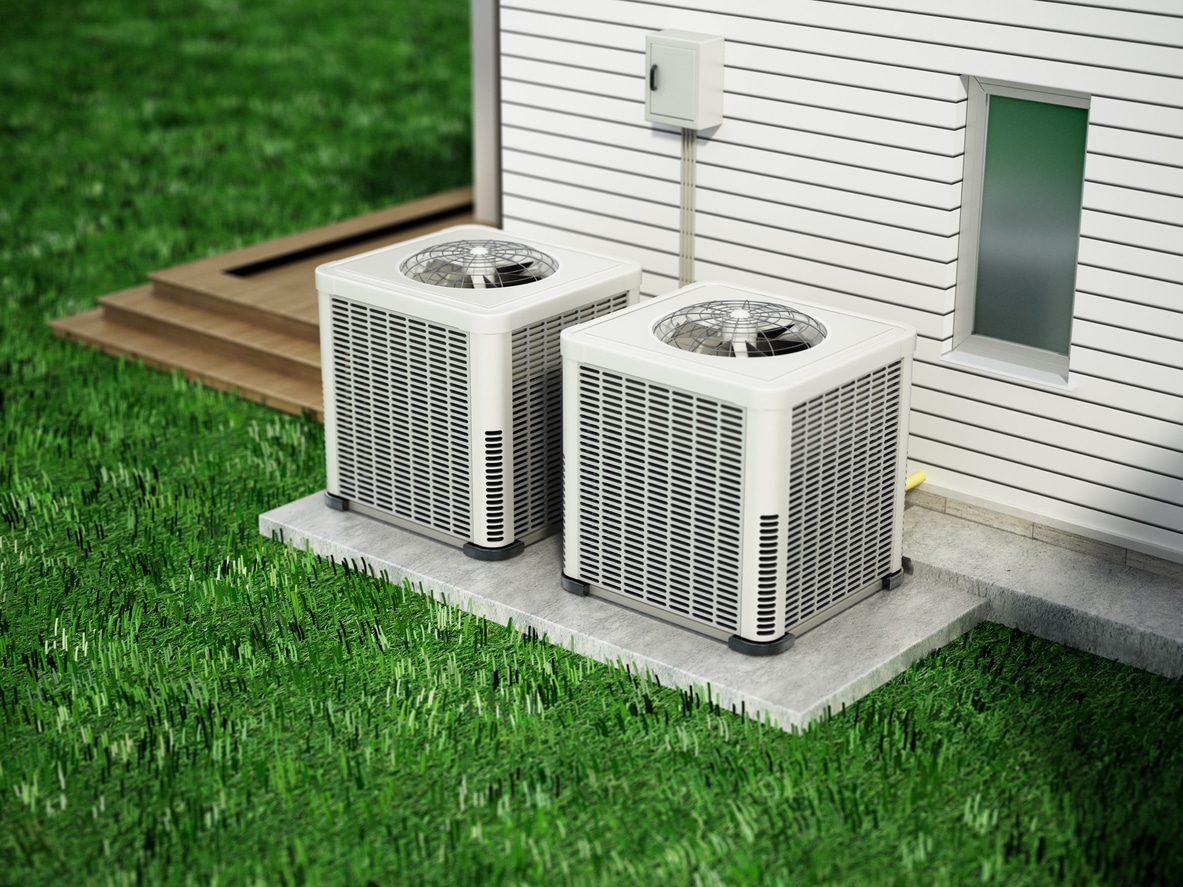
Power surges are sudden spikes in your home’s electrical power. These events are incredibly brief — most last only millionths of a second — but they can inflict a great deal of damage on household electrical components when it happens. The electricity may surge a few hundred volts above normal voltage, or it can be several thousand volts. Your air conditioner and/or an electric furnace are at considerable risk if and when a surge strikes.
Where Power Surges Come From
Power surges may originate on your local utility’s grid due to events such as lightning strikes, trees falling on power lines, or other issues. Also, if a power blackout has occurred on the grid for some reason, when electricity is first restored, a potentially damaging surge may accompany it.
It’s important to note that more than half of all surges originate inside the house that’s affected by the surge — not on the public power grid. These in-house surges may be the result of aging or damaged wiring or circuit components that can’t handle the load. Also, certain appliances that consume substantial voltage — a central air conditioner is a good example — may spawn a surge of electricity through house circuits when starting up.
Suppressing the Surge
Protecting HVAC units from electrical surges, whether they originate outside the house or inside, is very doable and can help save the considerable expense of repairing or replacing these units.
- A whole-house surge suppressor can be installed at the main power panel in your house. This unit monitors electricity entering the house from the utility grid. If a sudden spike in voltage occurs, the suppressor blocks the damaging surge before it reaches circuits inside the house.
- Point-of-use suppressors may be installed at certain large components that may be affected by surges originating inside the home. For example, individual dedicated suppressors can be installed to protect a central air conditioner’s powerful compressor motor, as well as the circuitry in an electric furnace.
For more information about power surges and how to protect your electrical components from them, talk to the professionals at Jackson & Sons.

